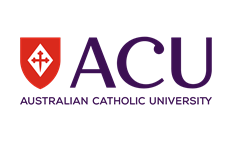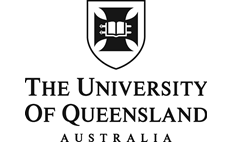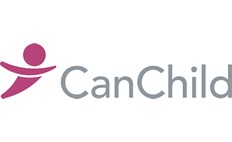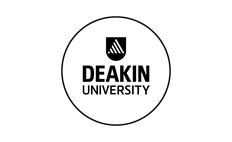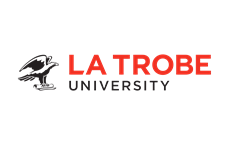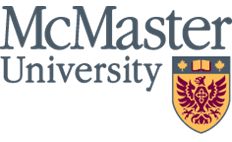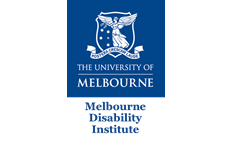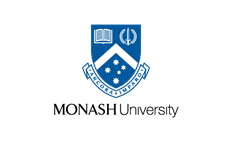2025 CP-Achieve & AusACPDM Symposium
- Published
- Tuesday, April 29, 2025 - 12:00 PM

Progress and Possibilities – Celebrating 5 Years of Research Through Lived Experience and Planning the Future
Date: Thursday 3 – Friday 4 April 2025
Location: Melbourne, Australia
The 2025 CP-Achieve and Australasian Academy of Cerebral Palsy and Developmental Medicine (AusACPDM) Cerebral Palsy Symposium was held in Melbourne on 3–4 April, bringing together a vibrant community committed to improving the lives of young people with cerebral palsy.
This year’s theme, Progress and Possibilities, marked a celebration of five years of research shaped by the voices of people with lived experience, while also looking ahead to the future of cerebral palsy research.
The symposium was the third and final joint event between CP-Achieve and AusACPDM, with a strong focus on the health, well-being, and participation of adolescents and young adults with cerebral palsy, and on shaping what comes next beyond CP-Achieve.
Over two days, more than 180 participants — including researchers, clinicians, people with lived experience, policy makers, advocacy organisation representative, and health professionals — gathered to share knowledge and ideas. The program featured 17 talks across 12 sessions, delivered by 30 speakers including researchers, experts in the field of disability, and individuals with lived experience.
Highlights and Summary
Day 1 - Health & Well-being
The CP-Achieve and AusACPDM Research Symposium opened with a warm welcome from Professor Dinah Reddihough, Principal Investigator at CP-Achieve, and Amy Hogan from AusACPDM. This compelling opening celebrated five years of dedicated research at the Centre for Research Excellence, with a strong focus on the vital role of consumer involvement. CP-Achieve has been a leader in integrating people with lived experience into every stage of research, and the session launched a new resource to help others engage consumers more effectively—a key legacy of CP-Achieve.
The morning continued with a keynote from Emma Livingstone, founder of Up – The Adult Cerebral Palsy Movement. In her personal and practical talk, Emma shared how her own experiences and frustrations with the lack of awareness and support for adults with cerebral palsy, motivated her to campaign for better services. Emma’s keynote inspired attendees to think beyond childhood and adolescence, highlighting the urgent need for greater visibility and ongoing support throughout adulthood for people with cerebral palsy.
Following the keynote, the symposium featured a series of presentations:
- Professor Kerr Graham and Dr. Eric Rutz from RCH Melbourne discussed advances in managing musculoskeletal conditions in children with cerebral palsy, highlighting how population-based studies and registries open new possibilities for earlier intervention and improved outcomes.
- Giuliana Antolovich from RCH Melbourne stressed the importance of listening to and collaborating with young people with cerebral palsy and their families, particularly in managing dystonia, pointing out how health professionals often interrupt patients within just 11 seconds.
- Dr. Monica Cooper from RCH Melbourne presented her PhD research on the links between aetiology, epilepsy, and cerebral palsy, showcasing how a better understanding of these connections can improve diagnoses and care for young people with cerebral palsy and epilepsy.
- Dr. Adrienne Harvey from MCRI, representing the AusACPDM Pain Group, shared progress in developing user-friendly pain assessment tools to help clinicians assess pain in young people with cerebral palsy.
- Professor Susan Sawyer from RCH Melbourne and Megan Walsh from Deakin University presented on sexual and reproductive health of young people with cerebral palsy. They emphasised the importance of providing both general and disability-specific information, and the role of health professionals in facilitating these conversations in a safe, age-appropriate manner.
- Chris, a young adult with cerebral palsy, and Anand, the father of a young person with cerebral palsy, shared their stories on the importance of making choices and having a sense of control in transitioning to independent living. Their experiences highlighted these factors as essential to empowerment for young adults with cerebral palsy.
- Carolyn Pinto and Claire Rowland from CP-Achieve highlighted the importance of recognising diverse perspectives when working with young people with cerebral palsy. They stressed that no single experience represents the entire cerebral palsy community.
- Jackie Ding introduced the online educational module ‘CP-Pathfinding: Your Health,’ created by and for young adults with cerebral palsy. This resource aims to help young adults navigate the healthcare system and manage their health effectively.
- The day concluded with a reflection on CP-Achieve's five years of consumer involvement, celebrating key successes and challenges. This session focused on how consumer engagement has evolved, building stronger researcher confidence and fostering deeper collaborations. The resources created from these experiences will continue to shape future research in cerebral palsy.
Day 2- Participation and future focus
Day 2 of the CP-Achieve and AusACPDM Symposium began with a powerful keynote from Professor Christine Imms, who highlighted the critical access gaps and poor experiences individuals with cerebral palsy often face in health systems. Drawing from recently published research she stressed the urgent need for systemic healthcare improvements. Professor Bruce Bonyhady followed with an impactful keynote, stating, “You can't fix the problems in the NDIS without fixing the problems outside the NDIS.” He encouraged broader thinking, urging for better integration of the NDIS with other systems like health, education, and housing to truly support people with disabilities. His call to action sparked bold conversations about creating real change in the sector.
The day continued with a series of insightful presentations:
- Dr Carlee Holmes introduced a groundbreaking project providing accessible exercise for non-ambulant adults with cerebral palsy through MOTOmed motorised cycling. This home-based activity promotes movement, health, and independence, demonstrating how the right tools can make physical activity inclusive and life-enhancing.
- Jacinta Pennacchia discussed the challenges faced by practitioners when assessing mental health in AAC (Augmentative and Alternative Communication) users with cerebral palsy. She emphasised the importance of understanding AAC users' lived experiences and co-designing resources to improve mental health care, promoting a more inclusive, person-centred approach.
- Dr Stacey Cleary and Freya Munzel presented findings from their scoping review on the participation experiences of adolescents and young adults with cerebral palsy and shared updates on the CP-Pathfinding: Fitness for Life project. Their research celebrates youth-led collaboration and shows how lived experience can shape meaningful research outcomes.
- Dr Sarah Giles provided an update on mental health screening for adults with cerebral palsy, stressing the need for tools that address assessment limitations and co-existing conditions. She advocated for tailored approaches to better identify and support mental health needs in this diverse population.
- Professor Dinah Reddihough highlighted the transformative role of cerebral palsy registries in advancing our understanding of cerebral palsy. She shared progress in areas such as prevalence, causation, and the development of assessment tools, all of which are essential for improving care and shaping better outcomes for individuals with cerebral palsy.
- Dr Carlee Holmes and Dr Sarah Giles discussed the intersection of physical and mental health, particularly as individuals with cerebral palsy age. Their findings highlighted the importance of integrated care that addresses both physical and mental health to provide comprehensive support for people with cerebral palsy.
- Professor Prue Morgan shared primary care data from Australian GPs, showing that adults with cerebral palsy require longer consultations due to complex neurological and musculoskeletal issues. Despite this, mental health concerns are often overlooked, and prescriptions for anxiolytics and antidepressants are common, pointing to the need for better-integrated mental health care.
- Dr George Disney presented NDIS data for the cerebral palsy cohort, comprising of around 22,000 people. While the cohort is aging, the severity of conditions is decreasing.
- Dr Iain Dutia discussed the importance of collaboration between the healthcare and sports sectors to support individuals with complex cerebral palsy in participating in ParaSport. His talk emphasised the dual benefits of physical activity—improved health and the potential for medals—and advocated for more inclusive opportunities.
- Dr Gaela Kilgour inspired reflection on how to better support young people with cerebral palsy in their physical activity journeys. She highlighted the importance of meeting individuals where they are and working together to navigate challenges, showcasing the value of teamwork and tailored support.
- Professor Nora Shields and Dr Georgia McKenzie shared exciting developments in creating inclusive gym environments and supporting community physical activity for adults with cerebral palsy. They introduced the Fitness for Life resources, developed by and for individuals with cerebral palsy, set to be released in mid-2025, marking a significant step toward greater inclusion.
- Associate Professor Leanne Johnston emphasised the importance of providing opportunities for physical activity throughout the lifespan. She challenged therapists to create these opportunities for all children and young people with cerebral palsy, fostering lifelong engagement in physical activity.
- Dr Ingrid Honan highlighted the numerous opportunities for collaboration across sectors—developing services, advancing technologies, and partnering in research and advocacy efforts. Her talk showcased the power of teamwork in driving progress for the cerebral palsy community.
- Evelyn Culnane stressed the need for simplifying healthcare systems by improving access to health records, streamlining referrals, and providing reliable points of contact. She emphasised that these improvements would help individuals with cerebral palsy navigate healthcare more effectively.
- Amy Hogan advocated for a "cautious case for optimism," urging reflection on language, expectations, and practices. She emphasised the importance of making space for people with cerebral palsy in conversations and decision-making processes.
- Dr Jane Tracy concluded the day by highlighting three key elements that parents can promote: inclusion in the family and community, developing independence, and honouring choice. Her presentation emphasised the crucial role families play in supporting individuals with cerebral palsy across their lifespans.
- Emma Livingstone and Professor Dinah Reddihough concluded the final symposium with a shared message emphasizing the power of collaboration: "We need to garner our energies, gather with one voice, and drive forward with our collective strength."
You can still view the full program HERE
Our Sponsors
Silver Sponsor- Aidacare
Bronze Sponsors- AIMedical and Second Skin


